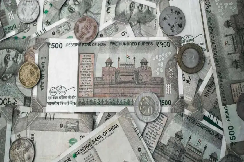The Confederation of Central Government Employees and Workers is adopting a ‘Wait & Watch’ approach, as rumours swirl about the establishment of the 8th Pay Commission and the potential fitment factor recommendations that the panel may propose. Shiv Gopal Mishra, the secretary, staff side, of the National Council of the Joint Consultative Machinery, or NC-JCM, recently told NDTV Profit that they are looking at a fitment factor of “at least 2.86”. Afterwards, the speculations of a 186% salary hike were triggered.
“It will be too early to comment on the fitment factor. The announcement of the 8th Pay Commission is still awaited,” said Rupak Sarkar, the president of the Confederation of Central Government Employees and Workers, to NDTV Profit. “Things are still at an early stage. We are in the process of preparing (our demands),” he further added.
8th Pay Commission: What To Expect?
Under the existing 7th Pay Commission framework, central government employees are entitled to a minimum basic pay of Rs 18,000 per month. This represents a significant increase from the Rs 7,000 minimum pay stipulated under the 6th Pay Commission.
Media reports suggest that if the government greenlights the 2.86 fitment factor, the minimum salary for central government employees could skyrocket 186%. These salaries could rise from the current Rs 18,000 to a substantial Rs 51,480.
The proposed fitment factor of 2.86 would yield a significant hike in pensions for central government employees, too. The monthly pensions potentially can jump from Rs 9,000 to Rs 25,740, representing a substantial increase in retirement benefits.
What Is The Fitment Factor?
The fitment factor plays a vital role in ensuring that salary increments are implemented consistently and uniformly across all pay scales and grades.
Additionally, this systematic adjustment helps preserve the purchasing power of Central government employees. This enables them to keep pace with rising expenses and maintain their standard of living.


